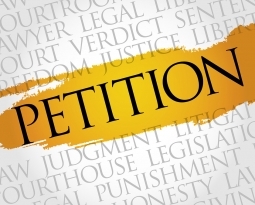Child support in New York
When a couple divorces or separates in New York State, the noncustodial parent is required provide financial support for any children under 21. By definition, such support includes:
- Regular cash remittances
- Child care payments (e.g. daycare costs)
- Health insurance
- Money for reasonable medical costs not covered by insurance
- Payments for educational and extracurricular expenses
How is child support calculated?
In New York State, support magistrates base their support payment orders on the net income of both parents combined. Each parent must provide the court with a Financial Disclosure Affidavit, which is a detailed list of all their financial information:
- Income
- Assets
- Property
- Expenses
- Debts
After determining each parent’s income, the court will combine the amounts and multiply that total by a percentage that depends on how many children the couple has. This percentage starts at 17% for one child and goes up to 35% or even more for five or more children. The income percentage amount is then combined with that parent’s share of child care, medical, educational and related expenses to arrive at a basic child support amount.
There are exceptions to this formula. In New York, if both parents make over $143,000 as a couple, the court may take other factors into account when establishing child support obligations.
Does the amount ever change?
If a major change occurs in either parent’s circumstances, such as job loss, change of income or an alteration in custody arrangements, then he or she can file a petition in court to request changes to the existing child support order. As a matter of course, support orders are automatically reviewed every two years to determine whether increases are advisable due to cost of living expenses. These adjustments do not require a court order.
What if the noncustodial parent stops paying?
Noncustodial parents who refuse to obey the child support order face heavy fines and even jail if a judge finds them in contempt of court. Penalties include:
- Wage garnishment
- Asset seizure
- Intercepted tax refunds
- Loss of professional or occupational license
- Loss of passport and / or driver’s license
- Negative notation on their credit report
The parent who is owed that money can bring an action on their own with the help of a family law attorney and later demand compensation for that attorney’s fees if there is a willful violation of the court order of support.
Parents who have decided to divorce need the support of an experienced New York family law attorney who can help them navigate the state’s complicated child support laws. They can assist in preparing their client’s Financial Disclosure Affidavit, explain how child support amounts are calculated, and clarify the process of making and receiving payments. As a result, the outcome has a much greater chance of being fair and equitable, giving both parties the chance to rebuild their own lives while taking care of their children.
At Eskin & Eskin, P.C. we are committed to our clients’ success. If you are considering divorce or seeking child support, then contact our office at 718-402-5204 for a free consultation. Our office is located on Sheridan Avenue, Bronx, near the Bronx Family Court and the Bronx Supreme Court. Visit www.EskinAndEskinLaw.com to learn more about our years of experience handling family court cases in the Bronx.





